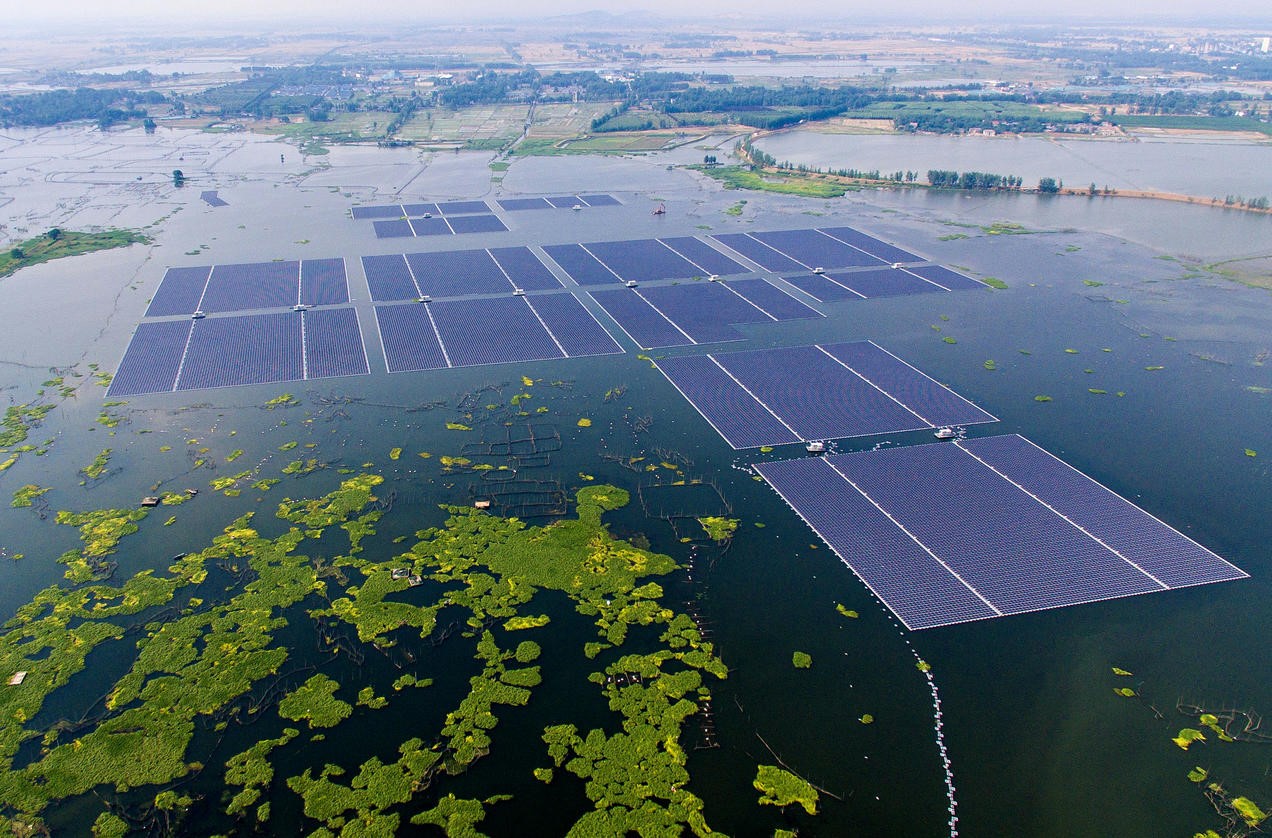Solar Floating System
Not every roof is suitable for solar panels – factors such as shade, obstructions, age, and available space can have property owners looking for other locations for installation. When it comes to large-scale solar projects, the most common alternatives to rooftop solar panel systems include ground mounts or solar canopies. Here’s a newer alternative that’s making quite the splash in the solar industry: floating solar.

What is floating solar? How do floating solar panels work?
Floating solar, also known as floating photovoltaic (FPV) or floatovoltaics, is any sort of solar array that floats on top of a body of water. Solar panels need to be affixed to a buoyant structure that keeps them above the surface. If you come across a floating solar installation, it’s most likely located in a lake or basin because the waters are generally calmer than the ocean. It’s also common to install floating solar structures on large, man-made bodies of water, such as reservoirs.
Advantages of floatovoltaics
-
No loss of valuable land space:
-
One of the biggest advantages of floating solar panels is that the installations do not require valuable land space. Many of these installations can take up unused space on bodies of water, such as hydroelectric dam reservoirs, wastewater treatment ponds, or drinking water reservoirs. This allows for landowners to make use of an area that wouldn’t otherwise be used, rather than installing on sunny land that could potentially serve another purpose down the line. Additionally, installing solar panels out on open water reduces the need for tree removal and forest clearing, a practice used in the case of some larger solar panel installations.
-
Higher solar panel performance :
-
Solar panels are durable and can perform under high temperatures. But as with other electronics, with higher temperatures come decreased power outputs. Solar panel performance tends to decline as temperatures rise, which can be a concern for property owners looking to install panels in a hot and sunny climate. The bodies of water that host floating solar arrays help cool down the solar equipment, which means the panels produce electricity at higher efficiencies in hot climates than they might otherwise.
-
Environmental benefits :
-
Floating solar panels can certainly play a role in contributing to healthier environments. With floating solar installations, water not only has a cooling effect on solar equipment: it works the other way as well. The floating solar panel structure shades the body of water and reduces evaporation from these ponds, reservoirs, and lakes. This is a particularly useful benefit in areas susceptible to drought, as water loss to evaporation can add up over time and contribute to a shortage.
The shade provided by these floating solar also help reduce the presence of algae blooms in bodies of fresh water. Algae blooms can be dangerous for human health if they occur in a source of drinking water, and can also lead to the death of plants and animals living in the body of water.
Lastly, floating solar panels are a source of clean, renewable electricity. The use of renewable energy technologies helps decrease the emissions of greenhouse gas emissions and other pollutants into the atmosphere, leaving a positive impact on the natural environment as well as human health.
The shade provided by these floating solar also help reduce the presence of algae blooms in bodies of fresh water. Algae blooms can be dangerous for human health if they occur in a source of drinking water, and can also lead to the death of plants and animals living in the body of water. Lastly, floating solar panels are a source of clean, renewable electricity. The use of renewable energy technologies helps decrease the emissions of greenhouse gas emissions and other pollutants into the atmosphere, leaving a positive impact on the natural environment as well as human health.
